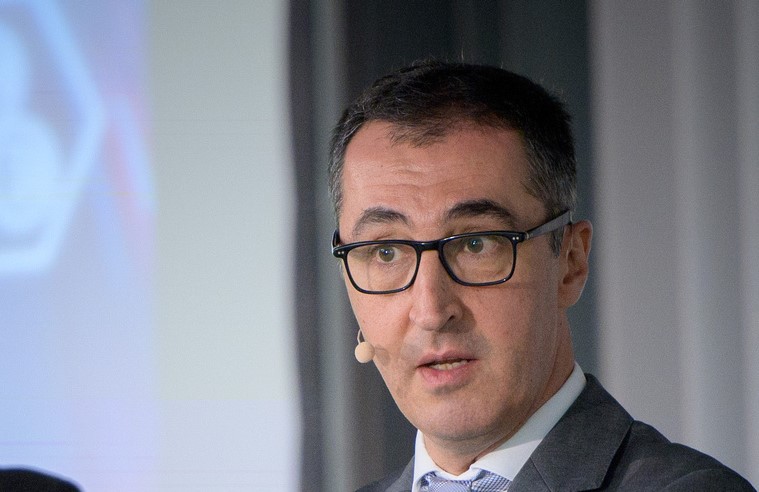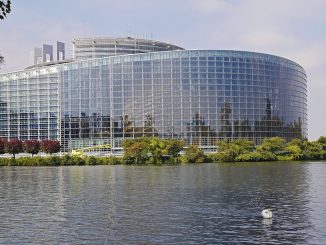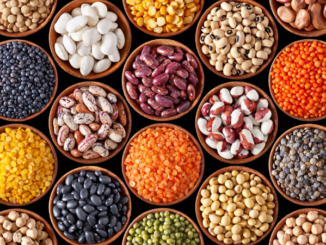
EU agriculture ministers have failed to find a position on the EU’s plans to loosen the rules on the use of genetic editing technologies, despite a concerted push from those at the helm of the rotating EU presidency. So what does this mean in practice? Natasha Foote brings you the latest from Brussels.
Overview
The new genetic modification techniques – also known as new genomic techniques (NGTs), gene editing or new GMOs – describes several scientific methods used to alter genomes and genetically engineer certain traits into plants.
After the European Commission put forward its vision for how the technology should be handled in the future back in July, it is now over to lawmakers to hash out their positions on the file.
With both camps pushing full speed ahead, the Spanish Presidency was hoping to seal the deal on a general approach (download it here) on the file on Monday (11 December) during the last meeting of EU agriculture ministers under its watch. (More info on what else went on today can be found at the Council’s official page here)
But its ambitions fell flat after the position failed to win over enough EU ministers to reach a qualified majority (QMV) of support.
The Details
QMV means a combination of 55% of member states vote in favour (or against) – in practice, 15 out of 27 – as well as member states representing at least 65% of the total EU population. (for more detail on QMV see here)
While the vote was not an ‘official’ one – meaning there is therefore no official voting list published – ARC understands that among those that tipped the scale against the Presidency position included Austria, Romania, Croatia, Poland, Hungary, Slovakia, Luxembourg and Slovenia, all of which reserved criticism for the proposal.
Meanwhile, Bulgaria and EU juggernaut Germany – whose government is split between the country’s green-led agriculture ministry and its liberal research and science ministry and Bulgaria – abstained.
Germany’s abstention is also particularly important because QMV of the population element to QMV.
Concerns and Reactions
Among the main bones of contention from member states included coexistence between organic production and conventional, as well as concerns over the handling of patents, a sticky subject that the Commission’s original proposal fails to address.
Meanwhile, several ministers also raised concerns over the lack of clear traceability and labelling requirements.
Welcoming the decision, EU organics association IFOAM gave a nod to agriculture ministers for “recognising EU breeders’ and farmers’ protection from patents and the monopolisation of genetic resources”.
Likewise, Greenpeace’s GMO campaigner Eva Corral said it was “encouraging” that countries did not reach an agreement on what she considers an “unacceptable” proposal.
“European countries must now proceed with negotiations to achieve that all new GMOs are safety checked, traceable and labelled. This will ensure a high level of protection for human health and the environment, and transparency for consumers and economic operators,” she said.
However, centre-right MEP Jessica Polfjärd, who leads work on the file over in the European Parliament, said that she “regretted” the fact the Council was not able to find a qualified majority on new genomic techniques.
The rapporteur said she “look[s] forward to concluding negotiations in the Parliament” and still hopes that the Council will “adopt a position in time for us to move forward on this important proposal”.
Meanwhile, Thomas Duffy, farmer and former Vice President of Young Farmers association took to X to criticise the EU Council for “dragging our farmers back into the stone age”, arguing the technologies are needed to help reduce our fertiliser and pesticide use.
What now?
The result will come as a blow to Spain’s agriculture minister Luis Planas, who has been vocal about his ambitions to seal the deal under his watch.
While the minister insists the Presidency will keep working on the file until the bitter end – or 31 December, which marks the end of its time at the helm of the rotating EU presidency – the most likely course of action is that it will now pass to the baton to the Belgian Presidency, which kicks off in January.
“We’ll continue to work [on this] until the end of our Presidency so that the Belgian presidency can hopefully conclude the trilogues with success,” Planas said. According to a representative for the Spanish Presidency, they will now attempt to push for a position during a meeting of EU ambassadors on 22 December.
Maintaining that EU ministers are “very close to reaching an agreement,” Planas noted that a failure to find an agreement soon would mean that the EU “will continue without a legal framework at least until 2025”.
However, ahead of the vote, another source close to the matter explained that if a qualified majority is not reached, the approach will most likely be turned into a “progress report or a state of play and move the file to the next to the next Presidency,” adding that this was the “standard” procedure.
Meanwhile, EU Health and Food Safety Commissioner Stella Kyriakides stressed that the file is of crucial importance for the European Commission, calling it a “tool that we cannot afford not to take advantage of and use”.
To help move the debate along, she said the EU executive is “fully committed to assessing the potential impact of patenting of plants,” calling it a “prominent issue” in the debate in both Council and Parliament.
“There are important issues but I’m confident we can find a way forward, promising that the Commission “will be looking at this”.
While the Commissioner said that the EU executive “reserves its position on certain substantial amendments”, citing herbicide tolerance plants and certain cultivation opt-outs, she said that it would “consider these carefully with a very open mind”.
Meanwhile, work continues in the Parliament, with a key vote in its agriculture committee also scheduled for Monday (11 December). While the committee is not the lead on the file, it does share competence on several key areas of the file, including on the status of category 1 NGT plants.
More
Brussels Roundup – Stasis for Animals, Tightrope for new GMOs
To Regulate Or Not To Regulate – NGTs Remain Highly Controversial
Leak – No Live Export Ban to non-EU Countries in Animal Welfare Overhaul
Pesticides Proposal Rejected in Plenary, Next Steps a SUR-prise
Commission to Renew Glyphosate for 10 years after Member States Fail to Reach Qualified Majority
Bugs from a Jug – Gene Edited Plants are Not the Only Things to Worry About
Seeds, New GMOs & Food Policy Councils – Diversity Event Comes to Dublin





